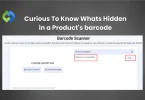Table of Contents
1. WooCommerce The Flexible WordPress Powerhouse
WooCommerce is one of the most popular open-source ecommerce plugins for WordPress, giving users total control over their store’s design and functionality. It’s ideal for businesses that want full customization without monthly platform fees.
Key Features:
- Complete design freedom through WordPress themes and plugins
- No transaction fees (except payment processor costs)
- Extensive SEO and blogging capabilities
- Large developer community and third-party integrations
Best For: Brands already using WordPress or those that want maximum flexibility at a low cost.
While WooCommerce offers impressive control, you’ll need hosting, security, and maintenance, which can add complexity as your store grows.
If you’re considering other Shopify alternatives, you can check out a detailed breakdown of leading competitors here: Shopify alternatives.
2. BigCommerce A Scalable All-in-One Solution
BigCommerce is often seen as Shopify’s closest rival, offering a similar SaaS setup but with greater flexibility in pricing and scalability. It’s designed for growth-oriented businesses that need robust built-in features without heavy reliance on third-party apps.
Key Features:
- No additional transaction fees
- Advanced product catalog management
- Multi-channel selling (Amazon, eBay, Google, Instagram)
- Strong SEO performance and site speed
Best For: Businesses looking for a cloud-based platform that grows with them without sacrificing performance.
BigCommerce is particularly strong for B2B and B2C hybrid stores, offering built-in wholesale features and enterprise-level scalability.
3. Magento (Adobe Commerce) Enterprise-Level Customization
Magento, now Adobe Commerce, is a powerhouse for large businesses or enterprises with technical teams. It’s known for deep customization, scalability, and performance. However, it requires more setup and technical expertise than Shopify.
Key Features:
- Total control over store design and functionality
- Advanced inventory and order management
- Multi-store management from a single dashboard
- AI-powered product recommendations through Adobe Sensei
Best For: Established businesses with complex product catalogs and high-volume sales.
If you’re comparing Shopify vs Magento, you can explore a detailed comparison that breaks down features, scalability, and costs here: Shopify vs Magento.
4. Wix eCommerce Simplicity Meets Design
Wix has evolved far beyond a basic website builder. Its ecommerce solution offers sleek templates, an intuitive drag-and-drop editor, and built-in tools for selling online.
Key Features:
- User-friendly interface perfect for beginners
- Dozens of customizable templates
- Integrated marketing tools (email campaigns, social selling, and SEO)
- Affordable pricing compared to Shopify
Best For: Small businesses, creatives, and service-based entrepreneurs who want simplicity with style.
While Wix is great for getting started quickly, it may not scale as efficiently for larger, complex stores with thousands of products.
5. Squarespace Commerce Perfect for Creative Brands
Squarespace is known for its stunning, design-centric templates and intuitive editing experience. Its ecommerce features have grown significantly, making it a strong contender for small to mid-sized businesses.
Key Features:
- Visually rich, mobile-optimized templates
- Integrated scheduling and membership tools
- No need for coding knowledge
- Seamless integration with popular payment gateways
Best For: Designers, artists, photographers, and small brands looking for aesthetic, high-performing storefronts.
Squarespace’s simplicity is both its strength and its limitation. It’s less customizable than WooCommerce or Magento but ideal for visually driven brands that prioritize style.
6. Shift4Shop (Formerly 3dcart) Feature-Rich and Cost-Effective
Shift4Shop provides a full-featured ecommerce platform with hundreds of built-in tools for managing everything from products to SEO. It’s an underrated option that delivers solid performance at a competitive price.
Key Features:
- No transaction fees for U.S. users using Shift4 payments
- Over 100 free themes and built-in CRM tools
- Advanced SEO customization
- Supports both digital and physical products
Best For: Small to mid-sized businesses seeking strong features without the high costs of enterprise platforms.
Shift4Shop’s combination of power and affordability makes it attractive for businesses looking to transition away from Shopify’s increasing app costs.
7. OpenCart For Developers and Customization Enthusiasts
OpenCart is a free, open-source ecommerce platform that gives you complete control over your website. It’s lightweight, fast, and can be expanded with thousands of extensions.
Key Features:
- Free to use with optional paid extensions
- Multi-store and multi-currency support
- Large community of developers and themes
- Excellent performance when properly optimized
Best For: Businesses with developer resources that want full control and scalability without licensing fees.
OpenCart isn’t for beginners, but it’s a strong choice for companies that value autonomy and technical flexibility.
8. PrestaShop European Favorite with Global Reach
PrestaShop is an open-source ecommerce platform that’s especially popular in Europe but widely used globally. It offers robust tools for store management and customization while maintaining strong scalability.
Key Features:
- Multilingual and multi-currency capabilities
- Thousands of modules and themes
- Strong product and inventory management tools
- SEO and marketing customization
Best For: International businesses or those planning to sell across multiple markets.
PrestaShop provides a great balance between flexibility and functionality, though it requires more technical know-how than SaaS platforms like Shopify.
9. Volusion Data-Driven and Streamlined
Volusion has been around for over two decades and remains a solid choice for merchants who prioritize analytics and performance tracking. While not as flashy as newer platforms, it delivers where it counts stability and insights.
Key Features:
- Built-in analytics dashboard
- Strong inventory and order management
- SEO and marketing tools included
- No transaction fees
Best For: Businesses that rely heavily on data to make decisions and want a stable, reliable ecommerce solution.
Volusion’s focus on analytics and operational tools makes it ideal for data-driven brands looking to refine their ecommerce strategy.
How to Choose the Right Shopify Alternative
Choosing the right platform depends on your business size, technical ability, and long-term goals. Here are a few questions to guide your decision:
- Do you want full control or simplicity? If you want total ownership and customization, open-source platforms like WooCommerce, Magento, or OpenCart are ideal. For simplicity, SaaS solutions like BigCommerce or Squarespace make sense.
- What’s your technical comfort level? Platforms like Wix and Squarespace require minimal setup. WooCommerce and Magento need developer support.
- What’s your scaling plan? Consider how much traffic, products, and integrations your business may need as it grows.
- What’s your budget? Shopify charges monthly plus app fees, while WooCommerce and OpenCart have lower upfront costs but more maintenance expenses.
By weighing these factors, you can pick a solution that supports both your present needs and your future ambitions.
FAQs
1. Why should a business consider switching from Shopify?
Businesses often move away from Shopify due to increasing costs, limited customization, or restrictions on backend control. As a store grows, these limitations can affect scalability, flexibility, and profit margins.
2. Which Shopify alternative is best for large enterprises?
Magento (Adobe Commerce) and BigCommerce are the top options for large-scale operations. Both offer advanced scalability, security, and multi-store capabilities that enterprise-level businesses need.
3. What’s the easiest platform for beginners?
Wix and Squarespace are the most beginner-friendly platforms. They require no coding knowledge and come with drag-and-drop editors for easy design and setup.
4. Are open-source platforms like WooCommerce and OpenCart secure?
Yes, but security depends on your hosting, updates, and extensions. Regular maintenance, backups, and security plugins are essential to keep your site safe from vulnerabilities.
Conclusion
Shopify remains a powerful ecommerce platform, but it’s not the only option nor always the best one for scaling businesses. As your online store grows, you might need greater flexibility, deeper customization, or a more cost-effective setup. Platforms like WooCommerce, BigCommerce, and Magento offer advanced tools and scalability for businesses ready to move beyond Shopify. Whether you prioritize creative design, open-source control, or enterprise-level power, the perfect fit is out there. The key is choosing a solution that aligns with your brand’s growth goals, technical capacity, and long-term strategy.














